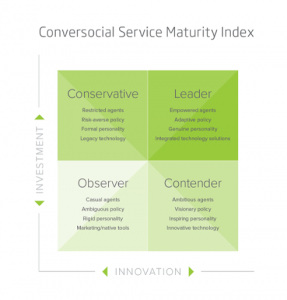— September 12, 2019
If you want to launch a business – any kind of business – your first mission will be to find a way to stand out among the competition. Let’s face it, unless you’ve invented the latest and greatest high-tech widget, you’ll be plunging into a sea of competitors who have been at it a lot longer than you.
That was my dilemma when I launched my financial planning firm back in 2008. My biggest challenge was how to get potential clients to notice me and do business with my firm?
You can spend a lot of money on marketing, but that’s in short supply when you’re an upstart. For me, that meant investigating low-cost ways to get my message out.
Blogging seemed to have the greatest potential. It shaped up as a low-cost way for me to get out on the Internet – the Mainstreet Market Place of the 21st Century – and show the world what I had to offer.
My goal was to create one of the best financial blogs on the web. But success didn’t come overnight. There was a steep learning curve, that required mastering diverse skills, like content creation, search engine optimization and email marketing.
The time and effort spent has paid rich dividends. Not only did blogging help me to build up my financial planning business, but it also led me into other income generating ventures as well. Meanwhile, the blog itself became a major passive income source.
Blogging can work for you too, especially if you have a business. But one thing I’ve learned from more than a decade of blogging, is that one of the best ways to be successful is to avoid blogging blunders. There are seven, and the more you can avoid, the greater your chance of succeeding will be.
Blogging Blunder #1: You Don’t Really Have a Blog
A lot of people launch blogs every year, hundreds of thousands as a matter of fact. They’re often drawn by how simple it seems, but that simplicity can be a trap.
Yes, it really is easy to start a blog. But the vast majority of blogs fail, usually within the first few months.
The simple reason is that it’s not enough to start a blog, write a few articles, then sit back and wait for the traffic – and money – the pour in. The popular saying “If you build it, they will come,” doesn’t apply to blogging. Not even a little.
It can take months and even years to build an income-generating blog. But there are a few things you need to do to make that happen:
- Add new content regularly. At least two or three times per week is the minimum.
- Your blog will need to provide informative content, the kind that answers real questions people have.
- Your own personality will need to come through in everything on your blog.
The last point is especially important. Yes, you need to regularly post new, informative content. But since it’s so unlikely you’ll come up with anything totally unique, your personality will need to come through. You probably won’t be offering any information your readers haven’t seen somewhere else. But your personal spin on that information will make all the difference.
Much like a writer or an author, as a blogger, you’ll need to develop a voice. Ultimately, the main product on your blog is you. That means projecting your real self to your readers, and what you have to offer that’s different from every other blogger out there.
The more unique your voice – short of being weird – the better your chance of succeeding.
Blogging Blunder #2: You’re Not Being Your True Self
This is similar to the voice concept, but it goes deeper. People come to blogs to find the information they can’t get somewhere else. Sure, they can go to popular media sources, but those tend to be canned, generic, and impersonal.
The content you provide matters. It should always answer some sort of basic question, whether it has to do with finances, health, relationships, travel, or any other topic that people are interested in. But in the process of providing that information, you need to mix your own personality into your content.
For lack of a better description, that means telling your own story through your content.
A blog is a very personal medium. It will succeed or fail based on your ability to connect with your readers. The best way is by sharing personal experiences.
For example, you could write an article that tells people how to save money when buying a car. But the story is much more compelling if you write about how YOU saved money buying a car.
Not only does that personalize your content – which is exactly what doesn’t happen with the major media – but it also invites readers to share their own experiences.
There’s a certain amount of banter that takes place on blog posts. If you’ve been on many blogs, you’ll notice that most have a comments section below the article. This is where readers interact with the blogger. It creates an exchange of ideas that can make your content even more interesting, because it invites readers to engage you.
That engagement is where a blog becomes personal, and begins to build trust. By injecting your own personal story in all your content, you’ll invite just that kind of exchange. And that’s also what keeps readers coming back again and again.
Blogging Blunder #3: You’re Failing – Or Not Even Trying – with SEO
Search engine optimization, or SEO, can seem like an exotic concept. But it’s really the lifeblood of all websites, including blogs. It’s the “secret sauce” that gets visitors to come to your blog.
I’d love to tell you that all you need to do to have a successful blog is to create great content. And that’s certainly part of the mix. But no matter how good your content is, you’ll need to get people to it to even read it. And that’s where SEO enters the equation.
SEO is mainly about choosing certain keywords or keyphrases central to your business, your blog or the article you’re writing. You’ll then need to include that keyword or phrase throughout your content.
For example, if you’re writing an article on how to save money shopping for a new car, you might select the key phrase “save money car buying”, or something similar. For SEO purposes, you’ll want that key phrase included in your article title, meta-description, sub-headers within the article, images, and within the content itself.
By making consistent use of keywords and key phrases, the search engines will be able to clearly identify what your article is about. And that, in turn, will enable them to rank your article more highly in search results for that keyword or phrase.
There’s a lot more to SEO, certainly more than I can cover here. But if you want to be successful at blogging, this is one topic you need to master.
Blogging Blunder #4: Not Building an Email List
A sure-fire way to build a successful, income-generating blog is to build an email list. That’s simply a list that visitors to your website subscribe to to get updated content and other information from your blog.
If visitors like the content your blog provides, they’ll become regular readers. Some will want to sign up for your email list to get access to your new content as it comes out.
The secret with an email list is that it helps to keep your readers coming back to your site. Some may do that as a matter of habit. But others will need regular reminders, and email is the best way to do that.
Not only will regular email updates bring readers back to your blog on a regular basis, but it can also form the foundation of your marketing campaign for any products or services you offer on your site. It gives you a ready source of “regulars” to market to, or at least to draw to your latest blog content.
If you’re selling a product or service through your blog, and eventually all successful bloggers do, email is the first, best way to reach out to readers who know and trust you and your content. The fact that they signed up for the email subscription makes them essentially “warm leads”, and more open to whatever it is you’re trying to promote.
If you’re not sure how to do this, there are apps you can add to your blog that will invite readers to subscribe to your email list. But if you don’t have an email list going, you’ll be committing one of the biggest blogging blunders there is. You should have one up and running shortly after starting your blog.
Blogging Blunder #5: You Haven’t Created a “Lead Magnet”
A lead magnet goes hand-in-hand with your email subscription list. People may want to sign up for that list just because they like your content. But by offering some sort of free gift as an incentive more people will sign up. After all, who doesn’t like free stuff?
A lead magnet creates a win-win situation: the reader will be receiving a free gift, and in exchange you’ll get a new person on your email list.
The lead magnet doesn’t need to be costly or complicated for you. It can be a short guide that shows people how to solve a common problem.
For example, let’s say you write an ebook on how to become a successful blogger. You can assemble a short version of the e-book, including excerpted content. That will not only give your reader an incentive to sign up for your email list, but it may also encourage him or her to purchase your ebook to get the full information.
There are so many ways to do this, so you’ll need to do some research to come up with the ideas that will work best for your blog. It’s well worth the investment of time you’ll make.
Blogging Blunder #6: Not Creating Passive Income Streams from Your Blog
You probably already know there are people making hundreds of thousands of dollars a year on their blogs. Some are doing it by selling products and services, but some are doing it through the blogs themselves. And even if you are selling a specific product or service on your blog, you can increase your revenue by adding passive income streams.
Passive income is revenue that’s generated with little or no effort on your part. Most of the effort you’ll invest will be in creating the passive source. But once you have, it’ll work on automatic pilot. Your blog will then be generating revenue while you’re busy doing other things, like writing content, eating, sleeping, and even being on vacation.
There are different ways to do this, and you can choose whatever works best for you and fits well with your blog. One popular way is through affiliate marketing. That’s where you promote certain third-party products and services on your blog. And when a reader makes a purchase, you’ll earn a commission on the sale.
Another is by creating an online course. The sales process can also be set up on autopilot. You’ll have a page on your blog dedicated to the course. Various articles on your blog will direct readers to that page. When a reader buys the course, you’ll get the revenue from the sale. And it all happens without any direct effort on your part.
Space doesn’t permit going into all the details here, but you can refer to my article on 23 passive income ideas. (Focus on Ideas 10 through 13 that apply specifically to creating passive income sources from blogging.)
Blogging Blunder #7: Not Updating Your Blogging Knowledge Base
Once it’s up and running, a blog is a living, breathing entity all its own. Much like any other type of business, it needs to be constantly updated to remain relevant and profitable.
That will require updating your own personal knowledge base about blogging. Blogging has only been around for a little more than a decade, and it’s still changing rapidly. You’ll need to stay on top of those changes, and make adjustments as you go forward.
One of the best ways to do that is by networking with other bloggers. You can do that on an individual basis, or you can join dedicated networks. They’ve sprung up all over the Internet, as blogging has turned into its own industry.
You may think you mostly need help from others when you first launch your blog, and that’s certainly true. But you’ll need regular support from others, as well as information and knowledge of the latest blogging apps.
Also make an effort to stay current with developments in whatever topic area your blog is based on. For example, if you blog about investing, you’ll need to know the latest developments in the industry. That means following information in the popular media, as well as reading competing blogs.
Remember that blogging is mostly about providing information, so you’ll need to stay on top of that on an ongoing basis.
Final Thoughts
One of the unique qualities of blogging is easy entrance. Anyone who wants to can start a blog, and with very little money up front. But that’s both a blessing and a curse. The blessing is that you can get into blogging easily. The curse is that you can underestimate what’s involved.
Yes, it is easy to start a blog. But to convert it into a successful, income generating venture will take hard work and dedication. I think it just might be the very best business available to the average person. But you’ll need to implement certain strategies – and avoid the mistakes I’ve covered above – to make blogging work for you.
One more point is really important…blogging is very much a learning-by-doing exercise. If you’re planning to start a blog, don’t spend too much time trying to get it right. Get the blog up and running, get and implement all the strategies needed, then be ready for a big helping of trial-and-error.
If you find yourself in that phase, you’re not doing anything wrong. In fact, you’re probably doing everything right.
Digital & Social Articles on Business 2 Community
(54)
Report Post





